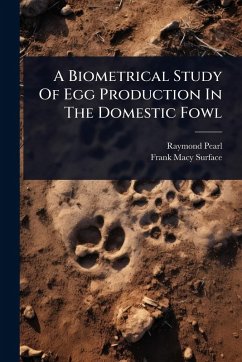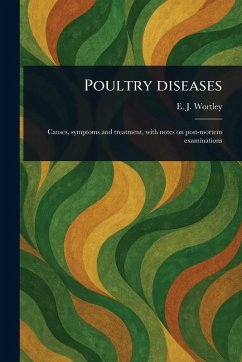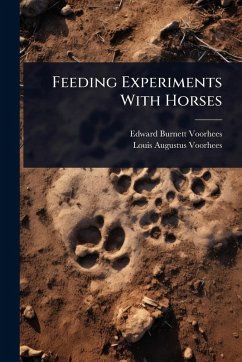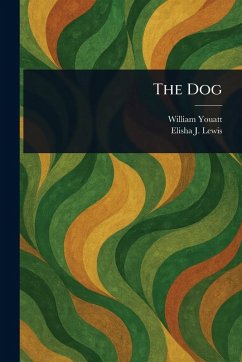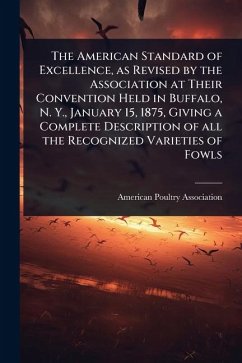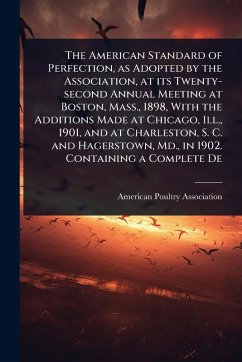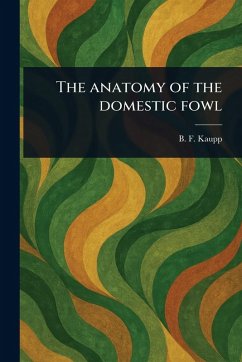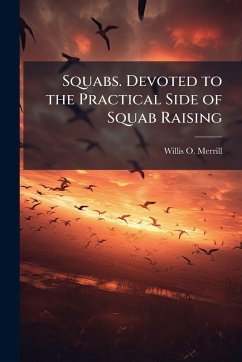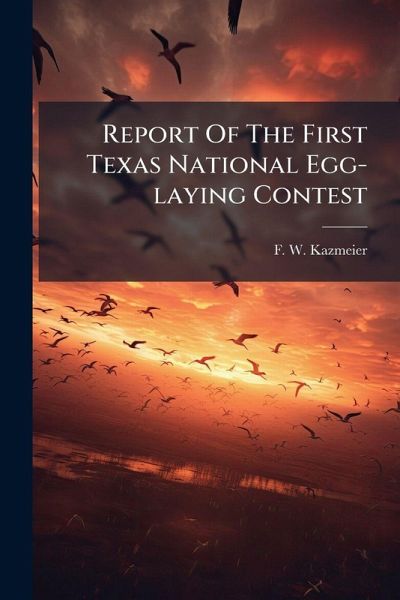
Report Of The First Texas National Egg-laying Contest
Versandkostenfrei!
Versandfertig in über 4 Wochen
14,99 €
inkl. MwSt.
Weitere Ausgaben:

PAYBACK Punkte
7 °P sammeln!
This report details the findings and results of the First Texas National Egg-laying Contest. Authored by F. W. Kazmeier, the report provides insights into the performance and characteristics of various poultry breeds in a competitive egg-laying environment. It is a valuable historical document for those interested in the early days of agricultural science and poultry farming in Texas. This provides historical insight into breeding techniques and practices that were important in developing more productive breeds. This work has been selected by scholars as being culturally important, and is part...
This report details the findings and results of the First Texas National Egg-laying Contest. Authored by F. W. Kazmeier, the report provides insights into the performance and characteristics of various poultry breeds in a competitive egg-laying environment. It is a valuable historical document for those interested in the early days of agricultural science and poultry farming in Texas. This provides historical insight into breeding techniques and practices that were important in developing more productive breeds. This work has been selected by scholars as being culturally important, and is part of the knowledge base of civilization as we know it. This work was reproduced from the original artifact, and remains as true to the original work as possible. Therefore, you will see the original copyright references, library stamps (as most of these works have been housed in our most important libraries around the world), and other notations in the work. This work is in the public domain in the United States of America, and possibly other nations. Within the United States, you may freely copy and distribute this work, as no entity (individual or corporate) has a copyright on the body of the work. As a reproduction of a historical artifact, this work may contain missing or blurred pages, poor pictures, errant marks, etc. Scholars believe, and we concur, that this work is important enough to be preserved, reproduced, and made generally available to the public. We appreciate your support of the preservation process, and thank you for being an important part of keeping this knowledge alive and relevant.



